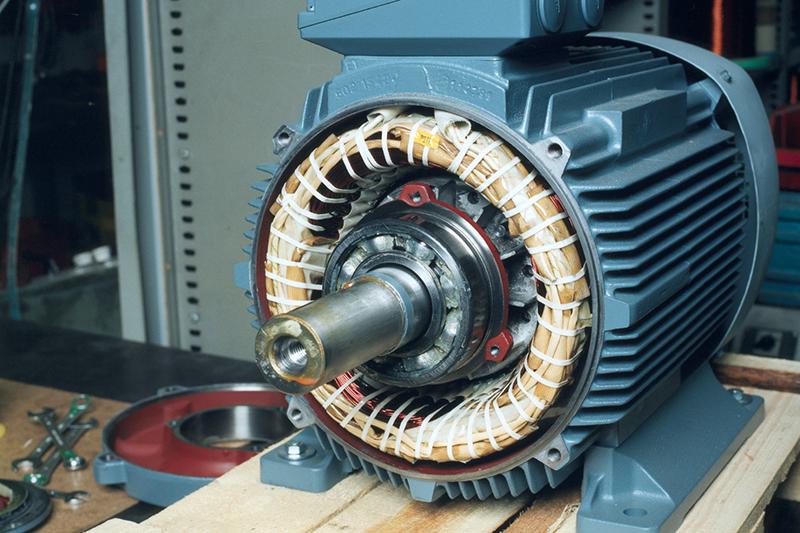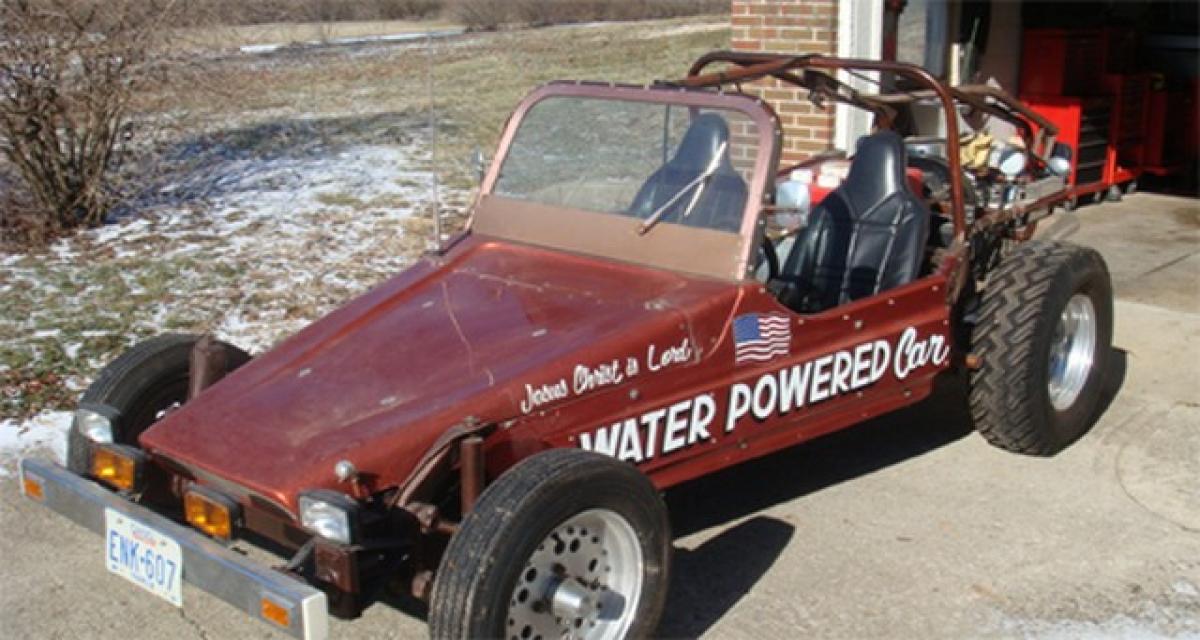The water motor engine (motor engine working water, urine or vinegar) from Turgut Can's blog
 The principle of conservation of energy does not prevent uninformed inventors from always proposing perpetual motion machines. These people undoubtedly have counterparts in art, finance, education, and in all areas of human endeavor. They waste no time in making the effort to know the facts before becoming supporters of objectionable opinions.
The principle of conservation of energy does not prevent uninformed inventors from always proposing perpetual motion machines. These people undoubtedly have counterparts in art, finance, education, and in all areas of human endeavor. They waste no time in making the effort to know the facts before becoming supporters of objectionable opinions.
There are people who first jump to conclusions, only to later distort the facts in accordance with their opinions, which have become irresistible. Robert Andrews Millikan
A lot of fuss was made by the invention of a Bacău engineer, who claimed, no more, no less, that he had created an engine that works exclusively on the basis of separating hydrogen from oxygen, from various liquids, with the help of an ion generator. Basically, it was claimed that our engineer made the famous water engine.
On a well-known website dedicated to automobiles, on August 7, 2017, it was written that "[…], an engineer from Bacău, invented the engine that runs on hydrogen. The bartender put his invention into practice by attaching to his car (a Cielo bought second-hand in Spain) a device that works with a mixture of water, vinegar, cola or even urine. The car can be considered ecological because it burns hydrogen and removes oxygen. […] he also tested his car at RAR, and the results regarding emissions were zero. "Any liquid containing hydrogen can be used as engine fuel. The device works with vinegar and cola, even with urine," declared the Bacău engineer. […] states that whatever liquid is put in the engine, with three liters, it can travel even 5,000 kilometers. The secret lies in the ion generator, which separates hydrogen from oxygen. However, the car only needs gasoline to start, and after that the engine runs on the mixture of water, vinegar, cola or even urine."
This text was written somewhat carelessly. It is impossible not to notice the fact that the engine of the Bacău engineer "burns hydrogen and eliminates oxygen" (although it is taught since middle school, I remind you that when you burn hydrogen you get ordinary water). But the main idea remains. A Romanian invented a machine that works with... water.
The idea is not exactly new. In 1990, the American Stanley Meyer patented a similar engine. You can also read the patent if you do a simple search for US4936961 (A), Method for the production of a fuel gas. I'm just trying to summarize the idea behind it. Mayer uses an alternating current source to perform the electrolysis of water. The frequency of this alternating current is chosen in such a way as to produce the resonance of the water molecules, and thus much less energy is consumed to separate, by electrolysis, the hydrogen from the oxygen. A combustible mixture of oxygen and hydrogen is thus obtained. In 1992, Meyer also obtained patent US5149407A, Process and apparatus for the production of fuel gas and the enhanced release of thermal energy from such gas ).
According to the patent, the gas atoms obtained with the device described in the above patent "are then ionized and burned thermally, thus releasing a greater amount of energy than that obtained by burning in the ambient air." Meyer also did some "demonstrations" with his engine and claimed that he could travel the distance between Los Angeles and New York with only 83 liters of water. (It is a rather modest performance in relation to the 3 liters consumed by the engine of the engineer from Bacău to cover a distance of 5,000 km.) I don't want to prolong things: in 1996 he was found guilty of "flagrant fraud" by a court of Ohio, for misleading two investors who had faith in the water engine he promoted. He dies in 1998, after having dinner at a restaurant. The coroner determined that death was due to an aneurysm, but, as usual, his supporters allege a criminal conspiracy. (Incidentally, it is said that our bachelor also barely survived a poisoning... nothing new under the Sun)
Anecdotal aside, is such a water engine possible? Very simply put, the principle would be the following: we have a device that dissociates water into hydrogen and oxygen. The resulting mixture is introduced into the cylinders of an internal combustion engine and, after compression, is ignited. This process results in energy. Part of it is used to move the vehicle and another part is used to dissociate water. Is such a thing possible? The answer is partly yes.
Yes, we can dissociate water into hydrogen and oxygen. Yes, we can use hydrogen as fuel for an internal combustion engine. But the energy obtained is much lower than that required to dissociate water. I remind you that the average efficiency of internal combustion engines is somewhere around 25%. This means that only about a quarter of the energy consumed for their operation is transformed into useful energy. Even if we took all of this energy to dissociate water into hydrogen and oxygen, it would still be too little to trigger the process. Remember, water is a very stable chemical compound, and it takes more energy to break the chemical bonds in the H2O molecule than it does to burn hydrogen. In conclusion, the extraction of useful mechanical energy from the cycle desc









































The Wall